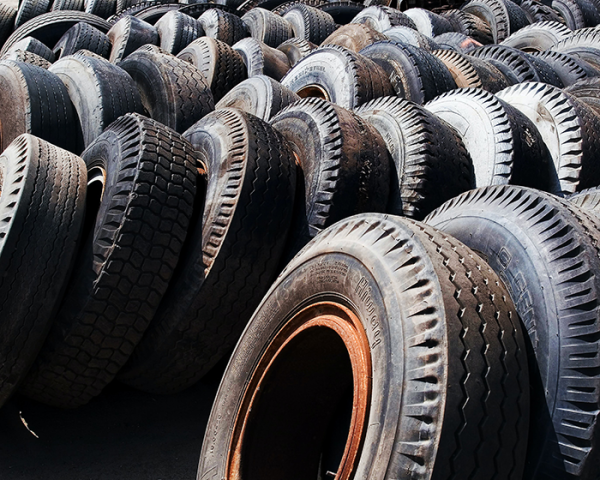Carbios and Michelin: on the road towards 100% sustainable tyres in 2050

To achieve this, it intends to rely on its numerous R&D departments and the various start-ups that are its innovation partners. Among them is Carbios, a green chemistry start-up that has invented a unique process for the enzymatic recycling of PET waste.
Enzymatic recycling: a unique and revolutionary process
This new technology consists of using an enzyme capable of specifically depolymerising the PET contained in various plastic or textile waste (bottles, trays, polyester clothing, etc.). The monomers resulting from this process are purified and then re-polymerised into a PET of equivalent quality to that produced by the petrochemical industry. Thus, all types of PET waste could, after undergoing the same treatment, be recycled ad infinitum to produce new 100% recycled and 100% recyclable PET products that are just as effective and appropriate for all kinds of applications.
This is what Michelin is exploring in order to meet its commitments as PET is the raw material for one of the main textile fibres used in the reinforcements of its tyres.
However, the recycled PET obtained using the Carbios process must be sufficiently durable to be used in the manufacture of tyres!
Tyre recycling: a major challenge
The two companies therefore "successfully tested and applied" the Carbios recycling process and, from the used plastic waste, they succeeded in obtaining "a high-tenacity tyre fibre that meets the technical requirements" and "a high-tenacity polyester that is particularly suitable for tyres because of its resistance to breaking, endurance and thermal stability".
"We are very proud to be the first to have produced and tested recycled technical fibres for tyres" said Nicolas Seeboth, director of polymer research at Michelin.
With close to 1.6 billion light vehicle tyres sold worldwide, the PET used in tyres accounts for 800,000 tonnes per year. "Applied to Michelin, that's nearly 3 billion plastic bottles a year that could be recycled into technical fibres for use in the company's tyres" he added.
More information:
www.carbios.com





